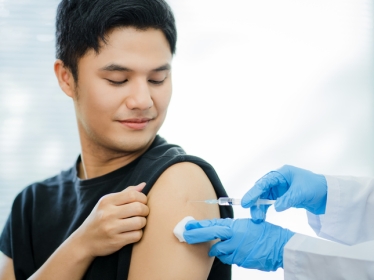
Taking a trip with little ones can be stressful and a whole lot of work, but the memories and experiences that you gain as a family are worth every second. Here are some simple tips that you can use on when travelling with kids!
Travel Vaccinations
When travelling to another country, you and your family may be at higher risk of vaccine-preventable illnesses. Some of the common diseases include measles, mumps, influenza, typhoid fever and chickenpox. These can be contracted either through airborne transmission or physical contact. Infants and children are especially susceptible to contracting these illnesses, due to their weaker immune systems.
To date, the only proven way to protect your child is through the use of vaccines.
Travel vaccinations are safe, effective ways to help protect travellers and minimise the chances of bringing home unwanted illnesses. They are instrumental in keeping children, families, and communities healthy all around the world by preventing the spread of vaccine-preventable diseases through global travel.
Protecting children from travel-related diseases involves updating routine childhood immunisations and appropriately administering itinerary-specific travel vaccines. The general advice is to consult a doctor at least six weeks before your departure date. This allows sufficient time for the relevant vaccinations to take effect and to address any specific health concerns.
Some of the common vaccines needed before travelling include:
- Influenza vaccine - can be given to babies as young as six months old and is recommended as the most effective measure for preventing influenza
- Typhoid vaccine - for children who are above two years old
- Hepatitis A vaccine - ensured for all susceptible children travelling to areas where there is a high risk of infection. However, this vaccine is not approved for children below the age of one
- Malaria - while there is no vaccine available to treat malaria, antimalarial medication is available should the need arise
Pack Healthy Snacks
Kids can get hungry on long trips or waiting in transit, and food might not always be easily available. Pack some healthy, non-messy snacks that you can eat on the go. Avoid sugary snacks that are likely to spike blood sugar levels and make kids hyper!
Some snacks you can try:
- Granola bars
- High-fibre/Low Sugar cereals
- Fresh fruit
- Cheese and crackers
- Raisins
Stay Hydrated
Staying hydrated while travelling is very important for kids and adults alike. When you're out and about - be it on a plane (very dehydrating!), sweating it out at the beach, or even on a sightseeing tour - you can easily forget to drink enough fluids. Dehydration can put your overall health at risk, causing fatigue, headaches, and a weakened immune system, so drink up!
Bring Medications
In the unfortunate event that you or your little ones fall ill, it is important to have some basic medication on-hand. These over-the-counter medications may be available overseas, but different brand names and languages could be confusing, so it is best to bring one you know from home.
Some common medications you might need:
- Painkillers
- Common-cold remedies
- Antihistamines
- Motion sickness pills
- Diarrhoea medication
Of course, if your child has existing medical conditions, be sure to pack the medication they need! Common important ones such as asthma inhalers and allergy medication.
Relax, and have a good time!
Even with the most detailed plans, things are bound to happen unexpectedly, so don't stress! Enjoy quality time with your children and make memories that you will remember forever.




